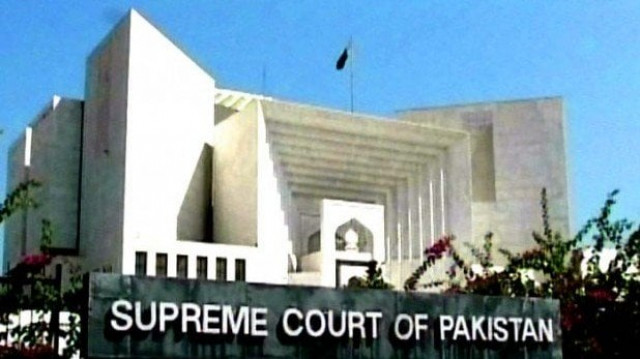NAB shouldn’t misuse its powers, harass suspects: SC
Says repeatedly detaining a suspect for multiple 90-day periods is cruel when only documentary evidence is required

The apex court on Thursday told the country’s top anti-graft body to refrain from misusing its powers and harassing suspects, observing that to repeatedly detain a suspect for multiple 90-day periods was cruel when only documentary evidence was required.
Justice Umar Ata Bandial, while presiding over a Supreme Court bench hearing a petition filed against the National Accountability Bureau for filing multiple references against suspects, observed that multiple 90-day detentions were cruel.
“White-collar crimes only require documentary evidence,” he added.
“NAB should not harass suspects, nor misuse its powers.”
Justice Mazahir Ali Akbar, who is also on the bench, remarked that no more than a 14-day remand is given in military court cases, whereas the anti-graft watchdog has been given 90 days to complete its investigation. "Why does it not then complete its investigation and file a single reference?" he asked.
To this, the NAB’s counsel responded that suspects did not cooperate until they were arrested.
He added that a money laundering investigation against an important politician in London was under way for the past two to three years.
“Which law gives NAB the authority to file a supplementary reference>” asked Justice Mazahir.
The NAB counsel replied that the reference was filed under the Code of Criminal Procedure’s supplementary challan law.
Justice Umar Ata Bandial maintained that NAB should use its authorities impartially. The court ordered all parties to submit written requests on the matter.
The SC also summoned the NAB prosecutor general to the court at the next hearing, to be conducted in January, for assistance.
In October this year, the top court had lambasted NAB for selective accountability and discrimination and said this behaviour of the country’s top graft buster was counterproductive and harming the nation’s anti-graft initiative.
It also expressed serious concerns over the delay in the trial of suspects facing cases filed by the NAB.
A senior government functionary while speaking to The Express Tribune admitted that NAB’s arrest policy was denting the accountability process.
He noted that instead of making efforts to have the suspects convicted, NAB was only putting them behind bars. “It is this policy that allows the opposition to criticise NAB, he added.
“The anti-graft body is also submitting lists of dozens of witnesses and that is also one of the reasons behind the delay in trial.”
Under the accountability law, the trial of a suspect should be concluded within 30 days.
In July this year, the Supreme Court in its 83-page judgment on the decision to grant bail to PML-N stalwart Saad Rafique had noted that NAB’s conduct throughout the case was a “clear manifestation of their utter disregard for law, fair play, equity and propriety”.
"The bureau seems reluctant in proceeding against people on one side of the political divide even in respect of financial scams of massive proportion while those on the other side are being arrested and incarcerated for months and years without providing any sufficient cause even when the law mandates investigations to be concluded expeditiously and trial to be concluded within 30 days. Nonetheless, investigation is often not concluded for months and cases remain pending for years," observed the court, while referring to frequent allegations of NAB being used for political engineering.
The court observed that this is not in the national interest and to the contrary is causing "irretrievable harm to the country".
Referring to the power of arrest held by the bureau, the court noted that the powers should not be deployed as a tool of oppression and harassment but should excercised with care and caution. "Arrest of a person has to be justified not only by referring to prima facie evidence and adequate actionable material sufficiently connecting the person with the offence/crime complained of, but also by showing that in the given circumstances, there were no other less intrusive or restrictive means available," read the writ order.



















COMMENTS
Comments are moderated and generally will be posted if they are on-topic and not abusive.
For more information, please see our Comments FAQ